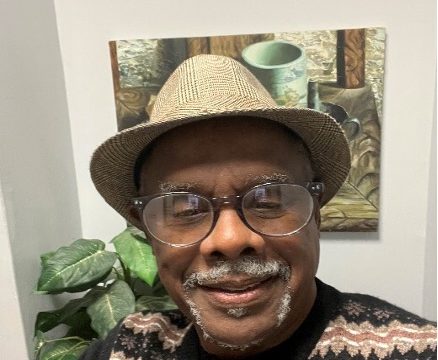

There I was putting the final touches on – and worrying myself silly over – the second in what was supposed to be a two-part piece on “pretending” and dealing with “pretentious” people when I received an email from my friend “Dean” who I reached out to for his thoughts on the topic. The Ivy League educated “Dean” is a deep thinker, prolific writer, business owner and member of our 26 Tiny Paintbrushes writer’s guild.
“I gotta tell you Terry that your surfacing the issue of pretending was spot on,” wrote Dean. “What a timely topic to delve into. It really got me thinking about how real and widespread pretending is and how rarely talked about the issue is.”
“Depending on the situation, intent and those involved, pretending can be harmless or insidious,” said Dean. “For example, if one is pretending to mask shame, embarrassment, save face or like someone they really don’t, it’s probably harmless. On the other hand, if pretending (or lying) to secure personal gain at someone else’s expense, that’s undeniably wrong.”
I asked Dean if he thought that the current trend in some states banning history books written by people of color and LGBTQ Americans because they “cause discomfort” and are “divisive” resulted in banning advocates “pretending” that those histories never existed.
“Of course,” said Dean, “And now that you posed that question, it should be clear that pretending is more nuanced and far reaching than we probably think it is. It is the rare situation where people are not pretending in some way.”
So, if we pretend that out biggest challenge nowadays is an invasion of transgender people in lady’s rest rooms, or that CRT (Critical Race Theory) is being pounded into the heads of first graders, aren’t we in denial I asked.
“You’d think,” responded Dean. “But let’s take this analysis to a deeper level. If pretending is to entertain, amuse or generate laughter (think about a comedian), that is entirely acceptable. However, for certain people in the America pretending is a necessary survival skill. Consider what African American historian Dr. W.E.B. Du Bois wrote:
“It is a peculiar sensation, this double consciousness, this sense of always looking at one’s self through the eyes of others. One ever feels his twoness, – an American, a Negro; two souls, two thoughts, two unreconciled strivings; two warring ideals in one dark body, whose dogged strength alone keeps it from being torn asunder.”
For generations, our ancestors had to ‘pretend’ – with “dogged strength” in Dr. Du Bois’ words – to survive a culture based on white supremacy. We had to hide our pride in ourselves, our history, our children; everything and anything that was good about us. We did this to protect ourselves from perceptions, demands and threats. What evolved was a survival technique that’s has been passed on for generations and has led to a ‘twoness’ that is hard for others to understand.”
“Think, for example, of the need to have ‘the talk’ with our children. We are essentially telling them that it is necessary to pretend to be someone else or be less threatening when encountering police, especially during the times we currently live in. The ability to “pretend” can be lifesaving.”
And, while we’re on the topic, during a follow up phone call I asked Dean his thoughts about those who cling naïvely onto the fallacy and pretend that we live in a so-called “post racial America” despite facts and evidence to the contrary.
“Good question. I remember that the election of the first African American president of the United States was when all the talk about post racial America started. Unfortunately, many still pretend that we’ve arrived and race is no longer an issue in America despite the facts that suggests otherwise.”
I end this by suggesting that we find out how to remove ourselves from the straitjackets of pretending. As poet Oscar Wilde wrote, “Be yourself because everyone else is taken.”
So just be yourself and do so without hesitation, apology or explanation and, as the saying goes, “let the chips fall where they may.” You’ll gain as many friends as you lose.
Now once you reach that unapologetic sweet spot of authenticity, you’ll feel better about yourself, feel freer to express your honest opinion, push back, gain respect and do less tap dancing and tip toeing just to “keep the peace!” And know that being authentic can have the reciprocal effect of encouraging others to behave likewise.
Oh, lest I forget, hold onto the belief that most (but not all) people, although imperfect, who seek to be good may resort to pretending to spare you from losing face, or perhaps to mask their insecurities.
In closing, though written in another context, here is an applicable quote from columnist Frank Bruni: “Who among us hasn’t put a coat of lacquer over our vulnerabilities, a serene façade on our roiling insides?” Well, the short answer is all of us!
I’ll now step back to the tedious task of tweaking my original Part Two on dealing with pretentious people, although thanks to “Mr. Dean” it is now Part Three in our trilogy.
Oh, wait, dammit, I just found another typo!
© Terry Howard is an award-winning trainer, writer, and storyteller. He is a contributing writer with the Chattanooga News Chronicle, The American Diversity Report, The Douglas County Sentinel, Blackmarket.com, co-founder of the “26 Tiny Paint Brushes” writers’ guild, recipient of the 2019 Dr. Martin Luther King, Jr. Leadership Award, and third place winner of the 2022 Georgia Press Award.


